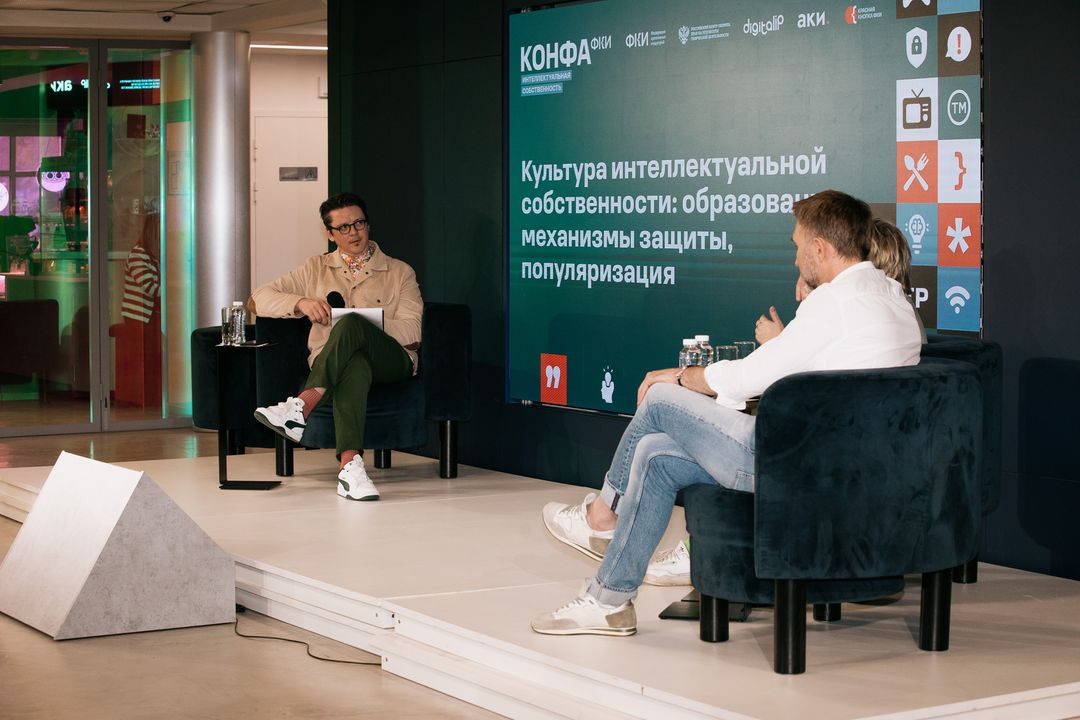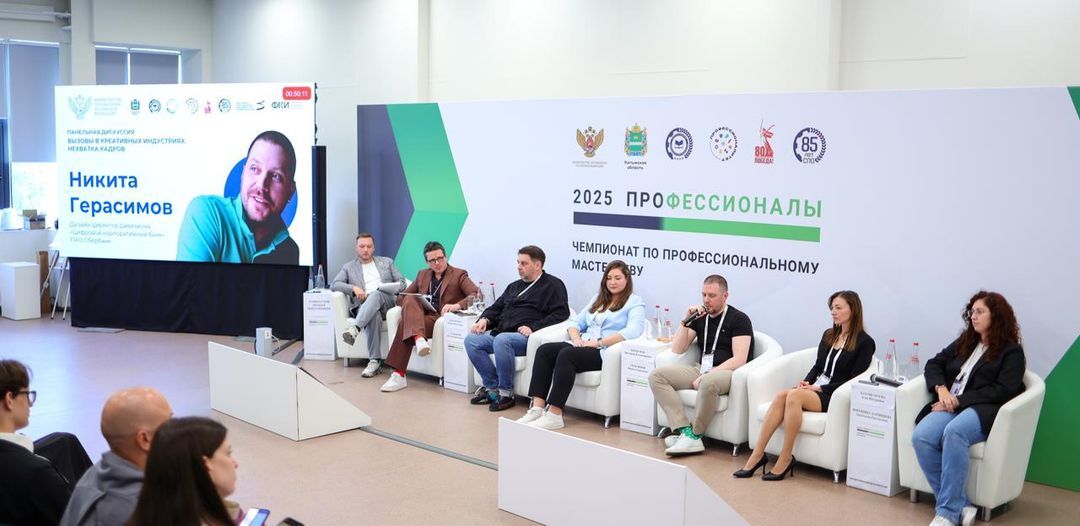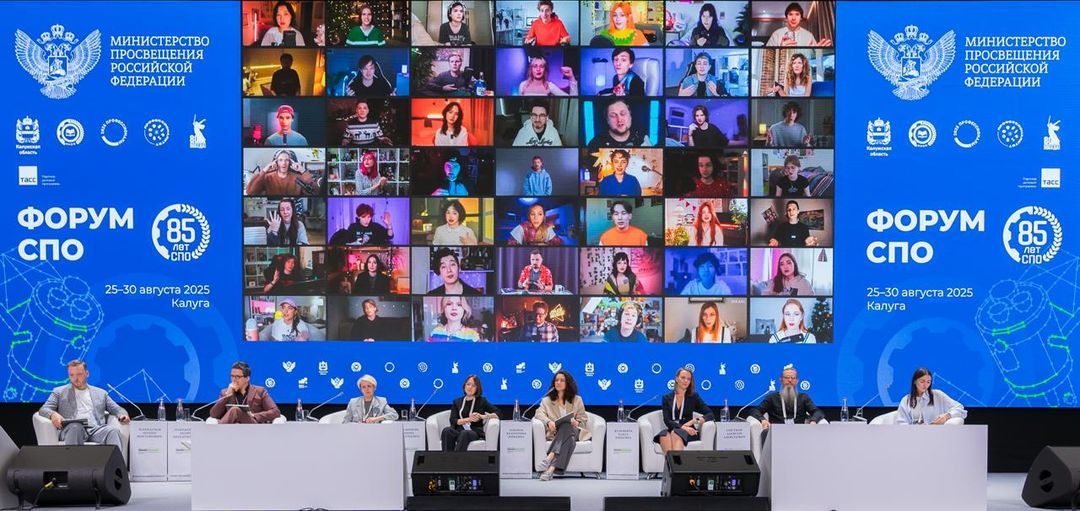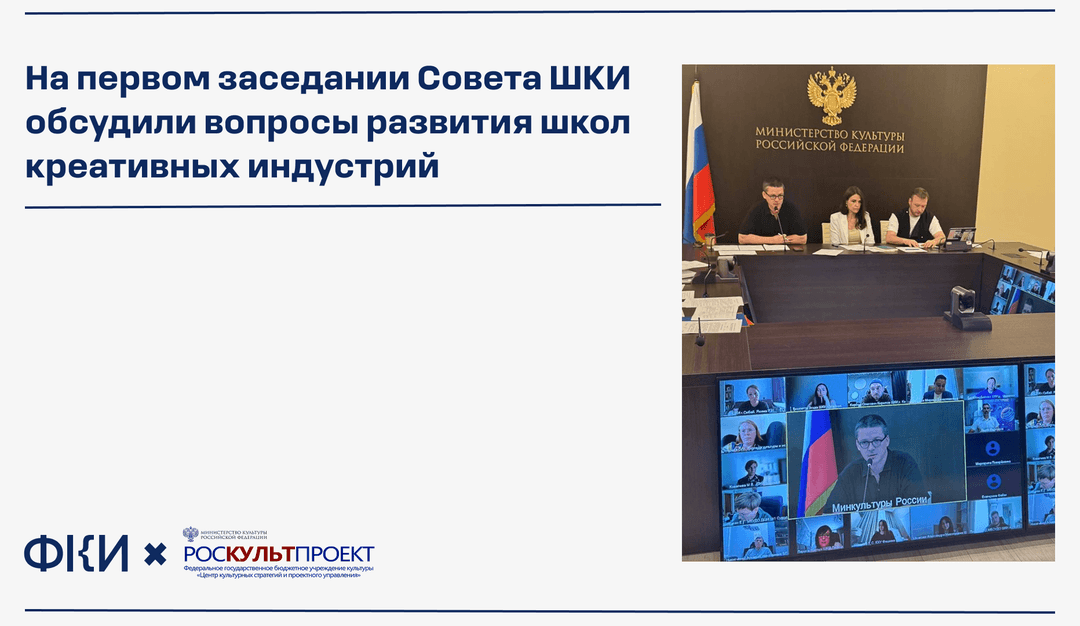

«Creative Industries = Intellectual Property»: CIF Talks #3 Focused on the Use of Intangible Assets

On April 25, CIF Talks: IP took place in Moscow — a focused conversation with experts and practitioners in the field of intellectual property (IP), dedicated to the protection and registration of intangible assets (IA). The event also addressed education and legal literacy among creative entrepreneurs, and the potential of using IP as collateral for bank loans.
The session was organized by the Creative Industries Federation (CIF) at the AKI.lab creative space, with support from the Russian Center for Circulation of Rights to Creative Outputs (RCCIPO) and the Digital IP Research and Education Center for Intellectual Property and the Digital Economy.
Opening the event, CIF CEO Igor M. Namakonov highlighted the relevance of the topics and the high level of the invited speakers:
«On the eve of World Intellectual Property Day, we brought together the leading specialists and key players in this field — people who have achieved visible results in Russia. Researchers, educators, heads of financial institutions, and digital rights registration services. It’s important to recognize that the system for protecting and managing IP rights for creatives is already remarkably developed in our country. And yet, awareness of this segment remains insufficient. With CIF Talks, we’re doing what we can to help bridge that gap.»
According to a study by HSE University conducted in 2024, Russia’s creative sector accounted for 10% of all registered organizations and individual entrepreneurs in 2023 — approximately 700,000 entities. The sector’s contribution to GDP was 3.8%, and it employed 4.6 million people.
The total value of intangible assets (IA) in the creative sector grew 2.5 times between 2021 and 2023. Notably, 80% of this value is concentrated in just three industries: software development, media & communications, and film & television.
These figures were presented by Evgeny Kutsenko, Director of the Russian Cluster Observatory at HSE University. In his talk, he also pointed out that 88.2% of the creative sector’s IA value is concentrated in Moscow:
«The level of intellectual activity in Moscow’s creative sector is 1.7 times higher than the national industry average — driven primarily by the software industry,» said Evgeny Kutsenko.
Alexey Chernukha, Head of the Intellectual Property Division at the Moscow Innovation Cluster, believes that Moscow’s leadership in this area is the result of targeted support measures for creative businesses.
The city’s business support infrastructure offers tailored services for IP-backed lending, patenting subsidies, expert guidance on choosing the right legal protection models, IP valuation methods, and the procedures for accounting and taxation of intangible assets.
«Since 2023, with the support of the cluster, 36 loans backed by intellectual property have been issued, totaling approximately 1.2 billion rubles.
As of now, 76 applications are under review by banks and undergoing valuation of their intangible assets. The most common forms of collateral so far are trademarks and software products,» said Alexey Chernukha, Head of the Intellectual Property Division at the Moscow Innovation Cluster.
Alexey Sokolov, Director for Regional Development and Cooperation at RCCIPO (Russian Center for Circulation of Rights to Creative Outputs), emphasized that intangible assets are real, economically valuable assets — citing a steady increase in copyright-related legal activity:
«There were 43,000 IP-related court cases in 2022, 52,000 in 2023, and 55,000 in 2024. These include disputes involving copyright and related rights, patent rights, and trademarks.»
Sokolov also reminded the audience that the Federal Law on Creative Industries serves as a framework law, allowing regional governments to develop their own support mechanisms for creative entrepreneurs. With Russia’s vast number of regions and diverse local policies, implementation varies — but thanks to ongoing awareness and education efforts, the situation is gradually improving.
One of the key advances has been the creation of regional IP depositories within the RCIPO.RF infrastructure network, which enable the deposit of IP objects using unified national standards — while remaining more accessible and affordable through preferential terms.
Regional experts who joined online shared their developments in this area. For example, the regional IP depository in Khanty-Mansi Autonomous Okrug (Yugra) has already registered eight copyright objects. The Entrepreneurship Development Fund of the Republic of Sakha (Yakutia) has begun issuing loans secured by intellectual property. In Krasnoyarsk, plans are underway to create a regional service within the national RCCIPO.RF infrastructure network, which will facilitate working with copyright protections.
Entrepreneurs facing IP registration for the first time naturally have questions: How do I register? What services are available? Where can I get consultation? Representatives from copyright protection services provided answers.
Yulia Lukyanova, Legal Director at n’RIS and IPEX, explained that authors mostly register texts, songs, poems, 3D objects, photographs, architectural designs, and music. Thanks to digital technologies, this process has become much simpler and more convenient through online service infrastructures.
Entrepreneurs facing IP registration for the first time naturally have questions: How do I register? What services are available? Where can I get consultation? Representatives from copyright protection services provided answers.
Yulia Lukyanova, Legal Director at n’RIS and IPEX, explained that authors mostly register texts, songs, poems, 3D objects, photographs, architectural designs, and music. Thanks to digital technologies, this process has become much simpler and more convenient through online service infrastructures.
«To protect your intellectual property rights, you need to follow four steps: choose your brand, check its availability, submit a registration application, and obtain the trademark. And then, of course, enforce it against competitors,» advised Alina Akhinshina to creative entrepreneurs.
To change attitudes toward intellectual labor products — not only among their creators but also within the wider public—it is essential to promote a culture of intellectual property. Educational initiatives should teach creative entrepreneurs the mechanisms of IP protection, so they consider registering their rights at the product creation stage rather than after their work has been “stolen”. Users of creative products should also be made aware of the time and effort invested in them.
«There is a clear definition in the Creative Industries law: a creative product is an intellectual property object or something whose value critically depends on the use of such objects. Creative products are produced by creative industries. In other words, creative industries are equivalent to intellectual property. If anyone tells you otherwise — know that they are either deliberately misleading you or simply don’t understand the basics», emphasized Sergey Matveev, President of the Intellectual Property Federation.
Sharing her experience in educating creative entrepreneurs, Ekaterina Chukovskaya, Director of the Digital IP Research and Education Center for Intellectual Property and the Digital Economy, and Vice President for R&D at the Intellectual Property Federation, PhD in Law, said:
«First, we teach how not to violate others’ rights. In other words, we aim to instill the ‘Golden Rule of Ethics’: would you allow your work to be used without credit? Would you want others to treat you that way? This is how a culture of respect for intellectual property gradually develops.»
Closing the discussion on education, event moderator Igor M. Namakonov emphasized the need to start intellectual property education from the early school years — after all, even a student’s essay is an intellectual property object.
Summing up the event, Igor M. Namakonov expressed confidence that the CIF Talks format proves its exceptional practical focus:
«CIF Talks is a format of focused, substantive non-stop discussions on a specific topic. The first Talk was dedicated to education and workforce development in creative industries. The second focused on exporting local creative products in the Russian Far East. Today’s third edition covered intellectual property issues.
CIF will continue hosting such events, working with the expert community on the most relevant and impactful topics for the development of the creative industries.»
The recording of CIF Talks: IP is available here:
https://vk.com/creativeindustriesfederation?w=wall-211818086_433
Photos from the event:https://vk.com/album-211818086_308596560








